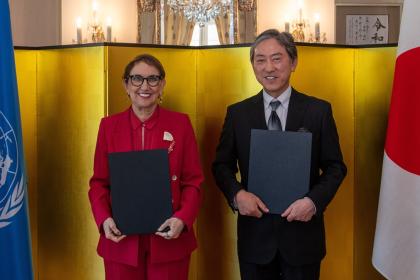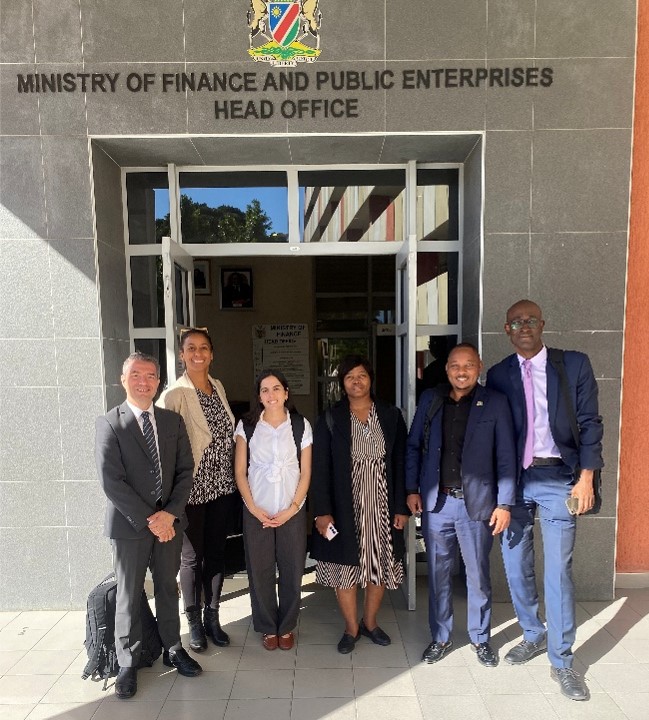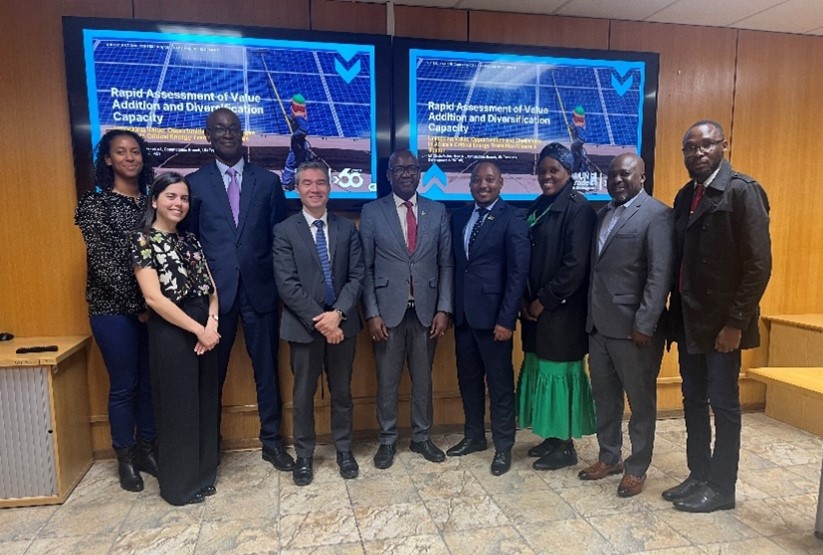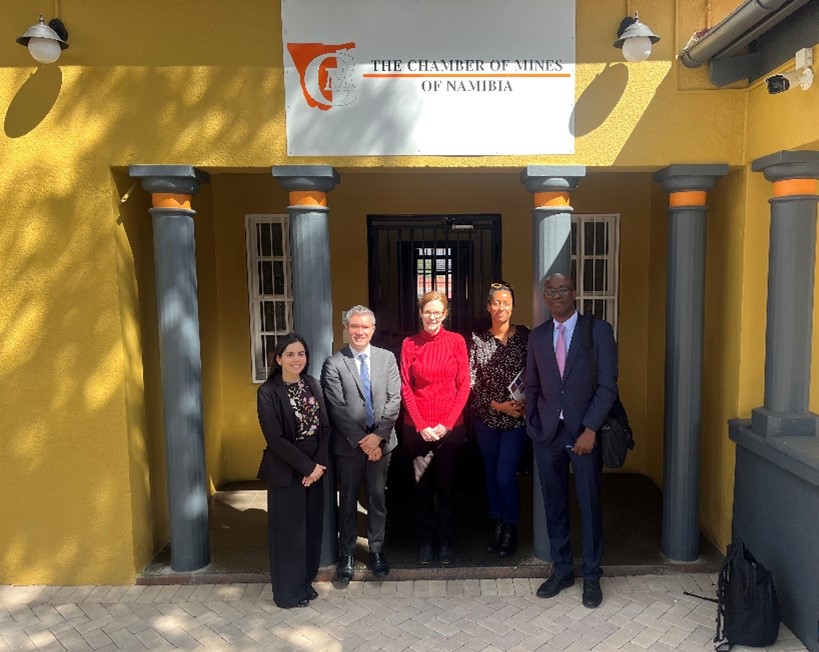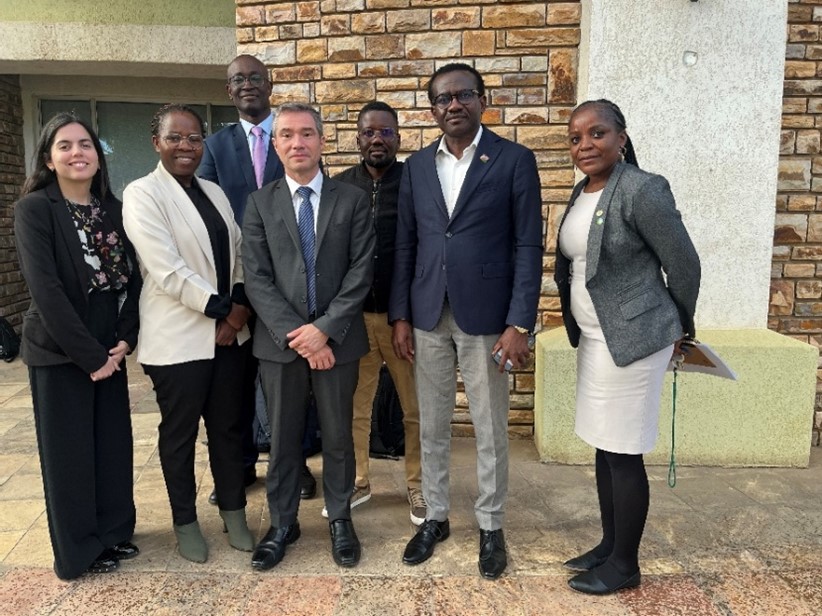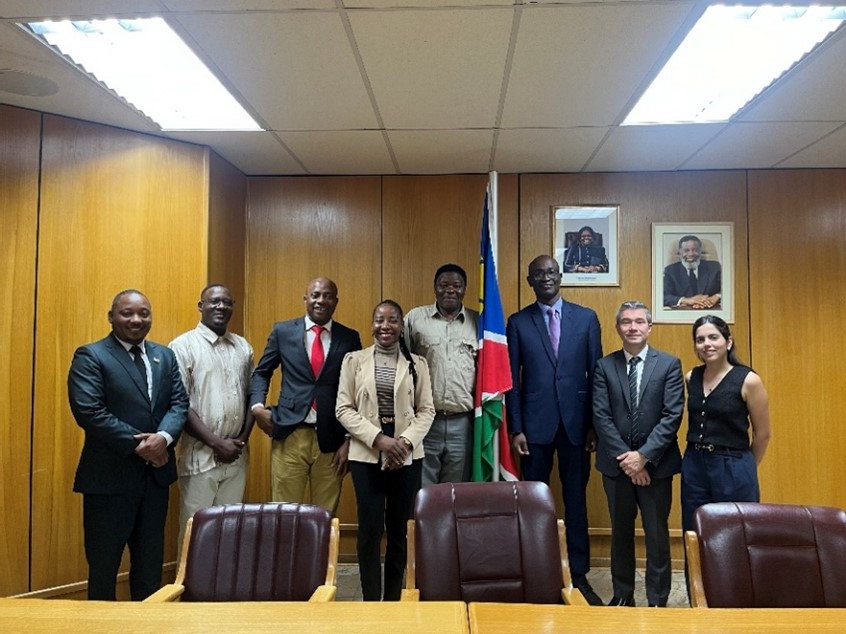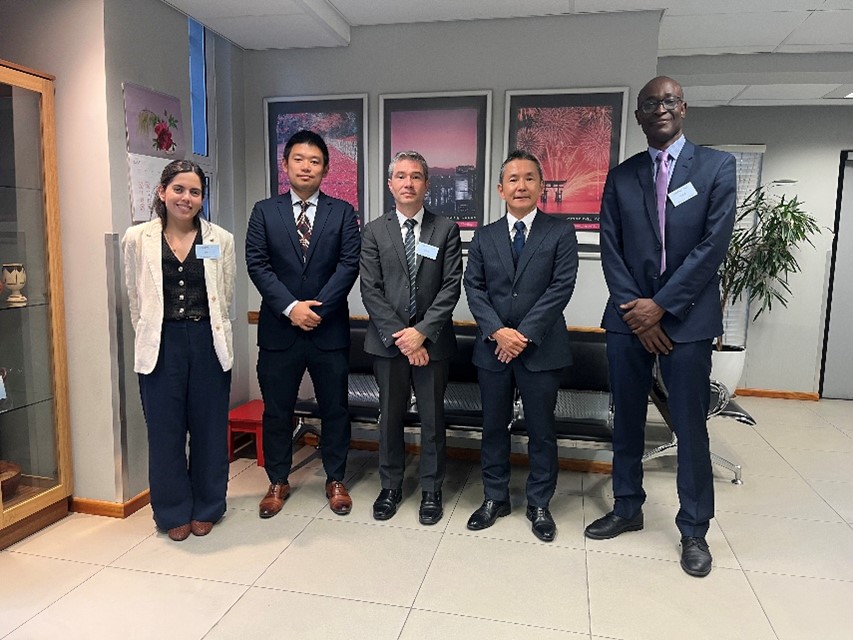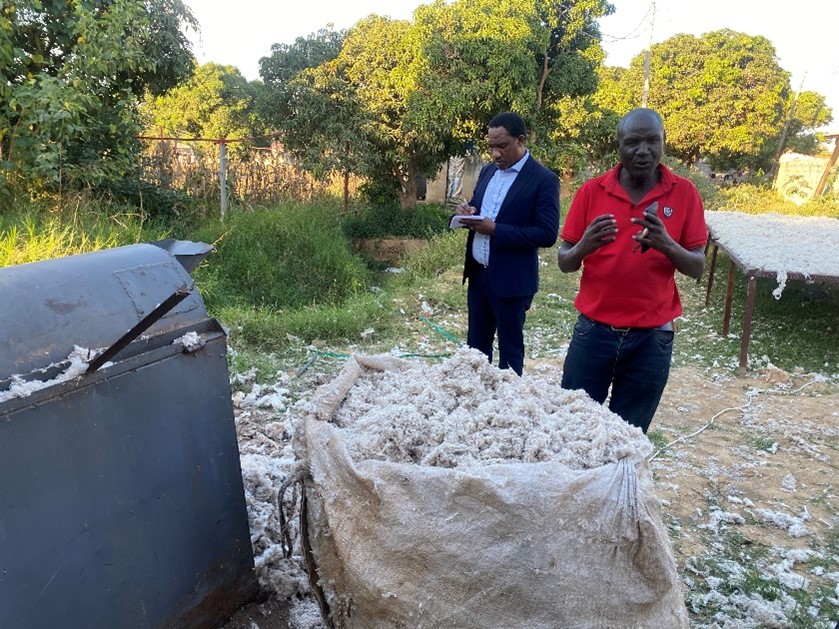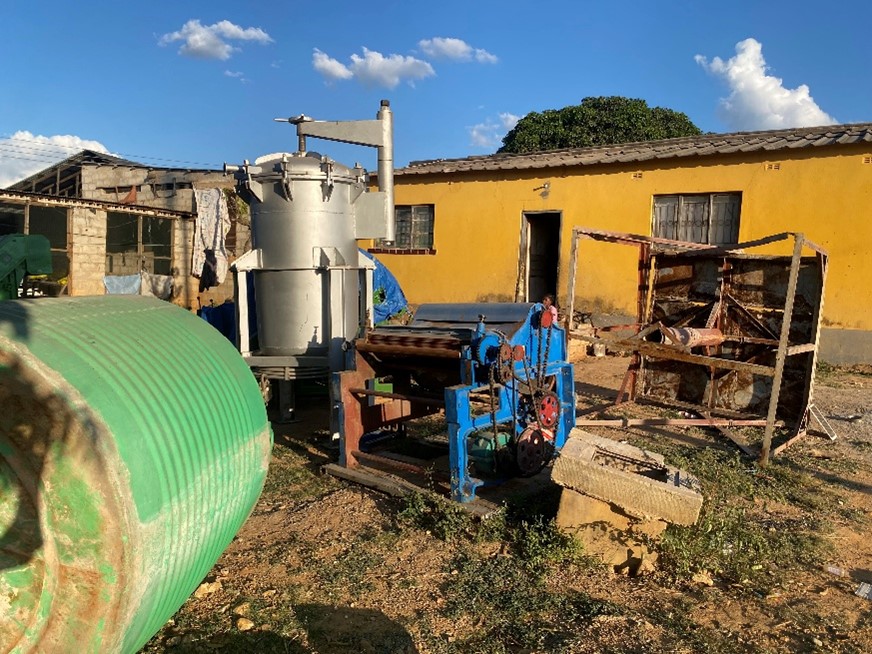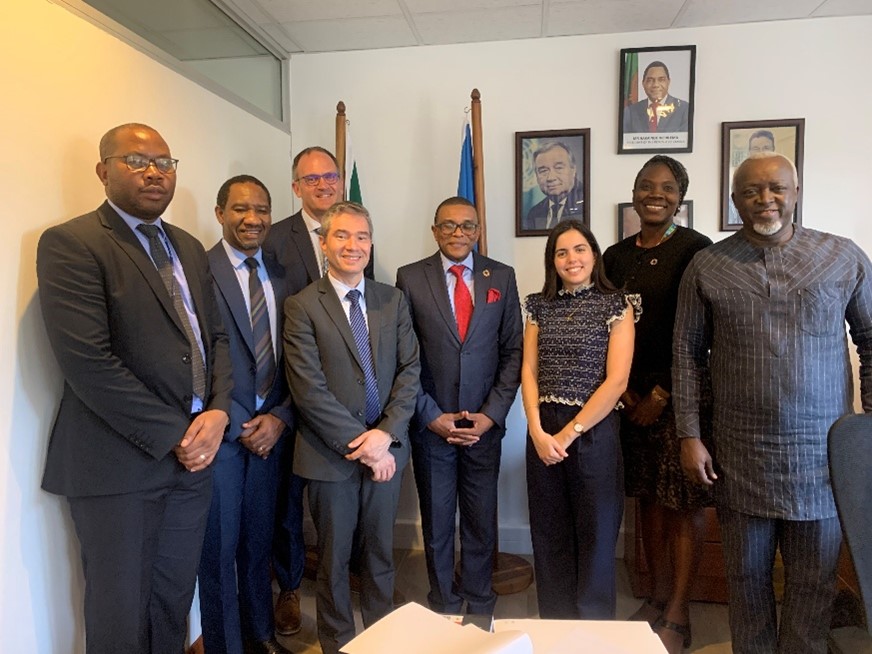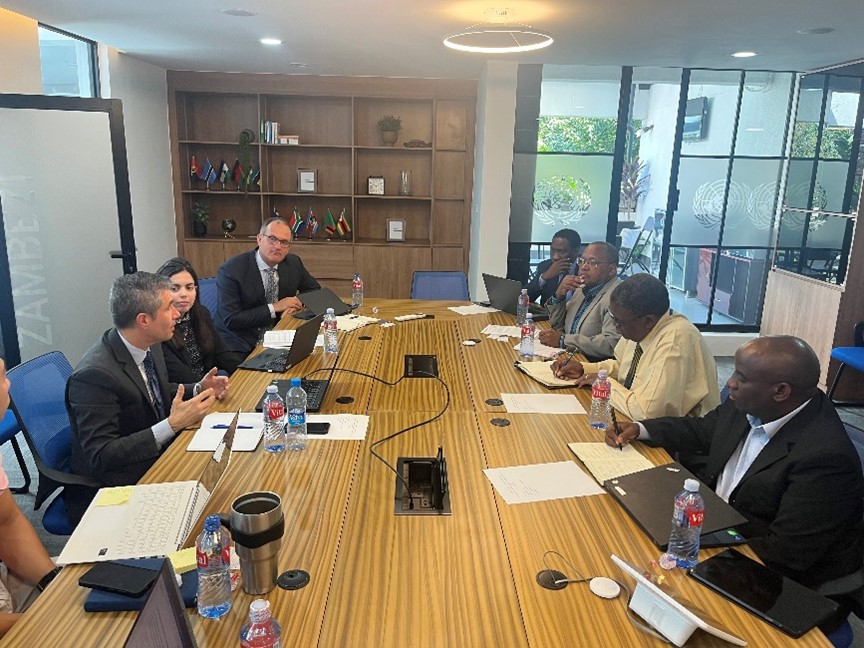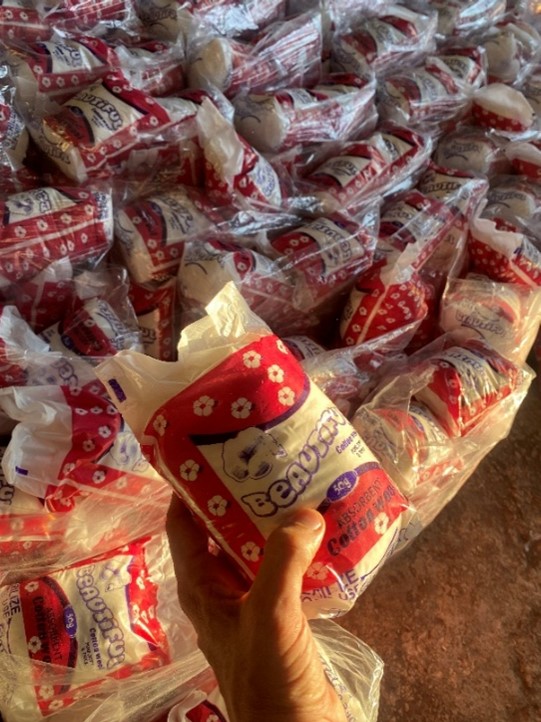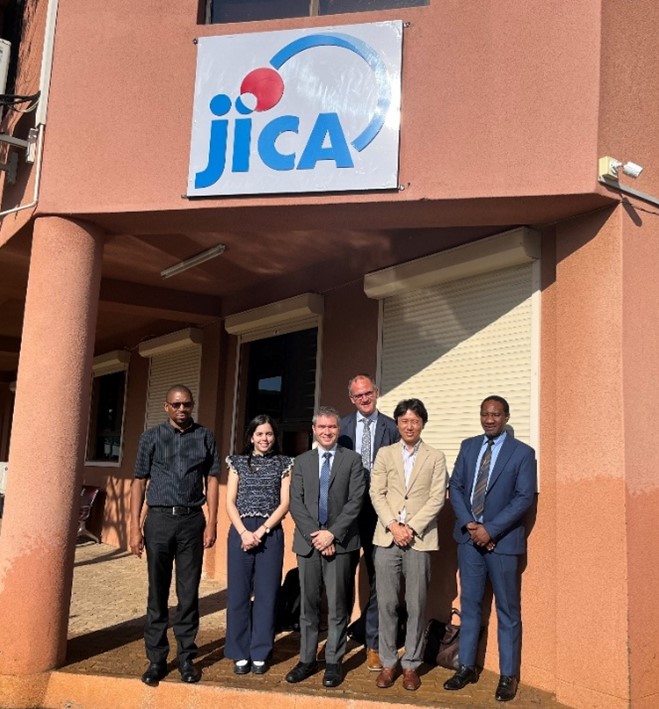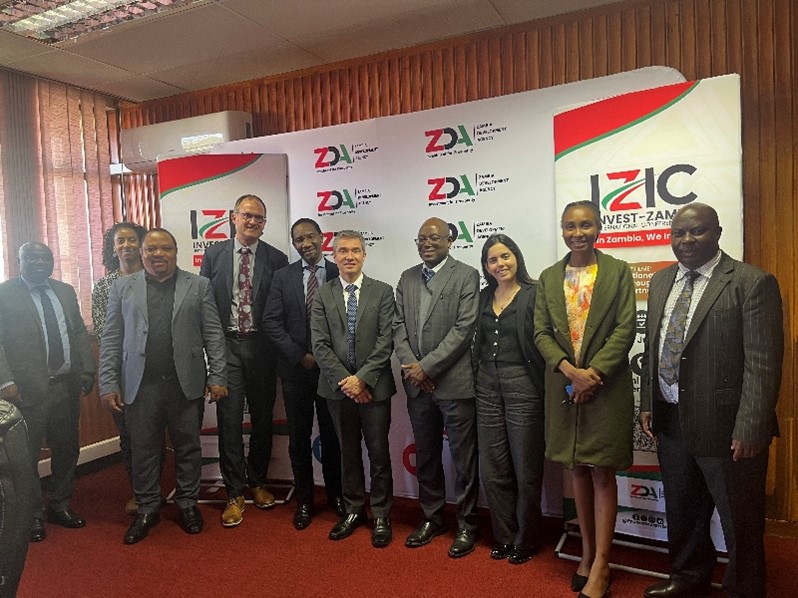Economic diversification and complexity are vital for sustainable, long-term growth. Countries that produce more complex products -those requiring advanced skills, knowledge, and technology- tend to be more resilient and grow faster in the long run. For many developing countries, especially those dependent on exports of primary commodities, diversification is key to structural transformation and reducing vulnerability to external shocks.
In Southern Africa, this need for transformation coincides with a surge in global demand for Critical Energy Transition Minerals (CETMs). These minerals such as copper, cobalt, graphite, lithium, and rare earths among others, are essential for manufacturing renewable energy technologies like solar panels, batteries, and wind turbines.
As producers of key CETMs, Namibia, Zambia, and Madagascar are well-positioned to benefit. The challenge lies in moving beyond extraction to value addition and broader economic diversification.
About the Project
This project supports beneficiary countries in identifying high-potential sectors for value addition and diversification, both within and beyond CETM-related value chains. It applies economic complexity and product space analysis, leveraging commercial transaction data to offer a more accurate picture of domestic production and guide evidence-based policymaking.
Country-specific Focus
Namibia
Namibia holds significant potential to diversify its economy by building on both its existing exports and emerging capabilities. Preliminary results identify strong opportunities in sectors such as organic chemicals, iron and steel, and machinery, both within and beyond the CETM value chain. Regional and global demand align with these strengths, offering pathways to industrial growth and economic complexity.
Zambia
Zambia can strengthen its position in both CETM-related and adjacent sectors by promoting diversification into chemicals, machinery and mechanical appliances, and food processing. Import substitution and regional trade integration offer practical entry points to build backward linkages and broaden the industrial base.
Madagascar
With high-quality graphite reserves, Madagascar can play a strategic role in energy storage and green technology markets. The project will explore options to enhance processing capacity and unlock new industries.
Objective
- Identify potential new products (goods and services) that are more complex and with high export and import substitution opportunities within and beyond the CETM value chains
- Identify priority products and clusters based on consultation with local industry experts and aligned with national development goals and international commitments
- Recommend targeted policy instruments and institutional reforms to support diversification into the priority sectors
Methodology
The project applies economic complexity and product space analysis to identify high-potential opportunities for value addition and economic diversification in each country.
- Economic complexity looks at the knowledge, skills, infrastructure, and institutions a country already has to assess its capacity to produce more complex goods.
- Product space maps how products are connected, using UNCTAD’s dataset of 49,000 products. It helps reveal which new sectors are most aligned with a country’s existing capabilities and which “nearby” industries offer the best prospects for growth.
This analysis draws on anonymized commercial transaction data -such as e-invoicing- to better reflect actual production and consumption, offering a more accurate picture than traditional trade data.
The project also includes:
- Stakeholder mapping in CETM value chains with government and civil society partners.
- Policy review to identify the tools and regulatory frameworks needed to support priority sectors.
- Workshops and consultations to validate findings with public and private stakeholders.
- Dissemination of results at national and regional levels, including through UNCTAD and UN country teams.
Intended Outcomes
The project will produce a final report for each country, featuring:
- Productive structure diagnostic: A detailed assessment of national production capacities using local data.
- Economic complexity and product space analysis: Identification of high-potential products and sectors for diversification based on existing capabilities.
- Stakeholder workshops and consultations: Engaging local stakeholders to validate findings and prioritize opportunities.
- Strategic policy recommendations: Guidance on investment, innovation, and industrial policies to support value addition and diversification.
Link to the SDGs
This project directly contributes to the Sustainable Development Goal 8: Decent Work and Economic Growth, and 9: Industry, Innovation and Infrastructure.
Partners
Effective implementation of the project depends on collaboration with:
- National ministries and planning bodies
- Chambers of commerce and industry
- Investment promotion agencies
- Technical institutes, universities, and vocational training centres
- Civil society and international development partners
Windhoek, Namibia, 13-16 May 2025
Meeting with government ministries, investment bodies, business chambers, and research institutions to introduce UNCTAD's data-driven methodology and strengthen collaboration.
Stakeholders in Namibia see the initiative as a potential "game changer" for Namibia's economic transformation.
Lusaka, Zambia, 19-22 May 2025
Meeting with government ministries, investment agencies, manufacturers, and research institutions to introduce UNCTAD's data-driven approach to value addition and economic diversification.
Stakeholders in Zambia welcomed the initiative as timely and well aligned with national priorities, highlighting its potential to strengthen key sectors like copper, cotton-to-textile, and agribusiness.
Mission to Namibia (July 2025)
The team engaged with national stakeholders to advance discussions around economic diversification and the sustainable development of Namibia's commodity sector.
Clovis Freire, the Acting Head of the Commodities Branch, and Rachid Amui, Economic Affairs Officer, shared critical insights into UNCTAD's ongoing project in Namibia and its broader role in shaping resilient and inclusive trade and development strategies in the region.
Mission to Namibia (May 2025)
At a workshop in Namibia public and private sector stakeholders explored how countries can add value to minerals like copper, lithium, and cobalt. This was a key step in a broader effort to support Namibia, Zambia, and Madagascar in building stronger, more diverse, and future-ready economies.

